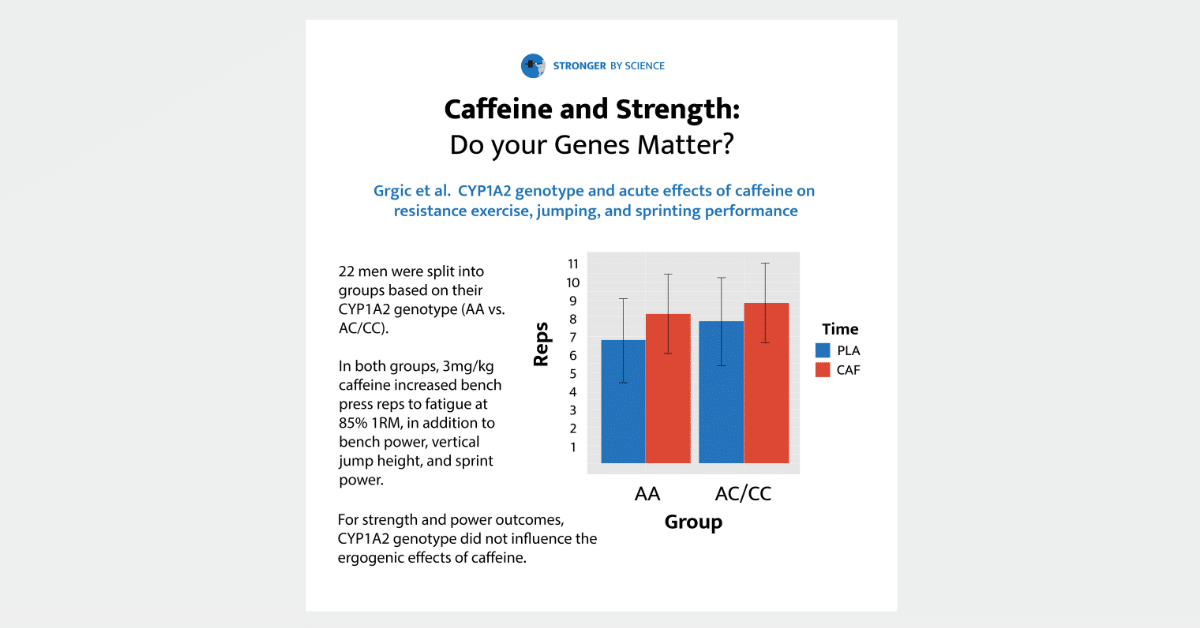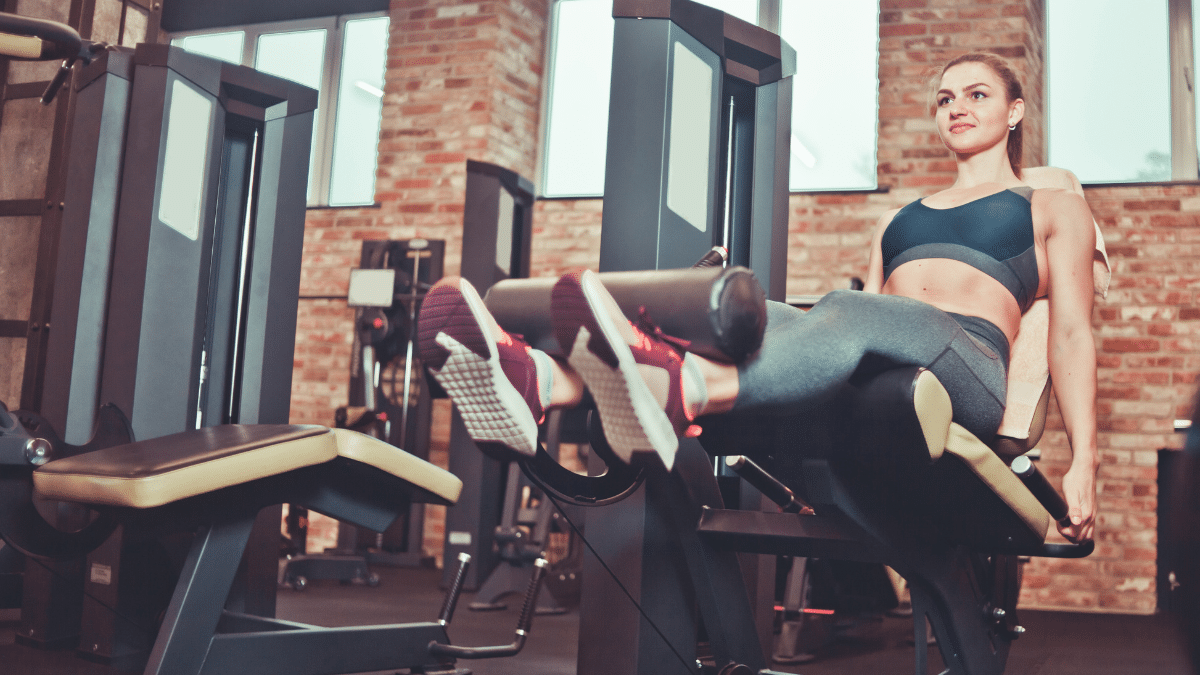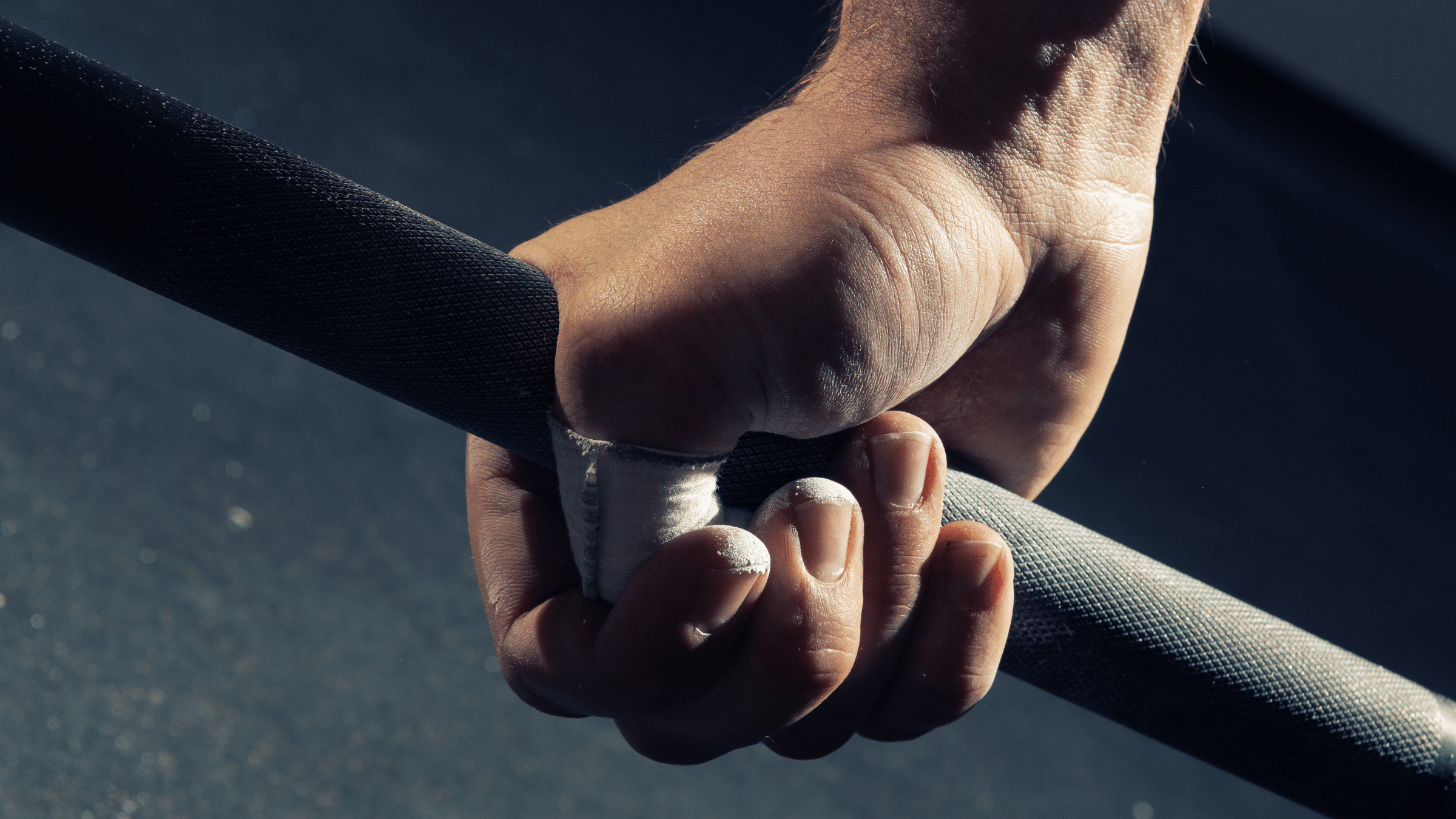In the last few years, an emerging area of caffeine research has focused on how our genes affect our responses to caffeine. We’ve known for a while that a major determinant of an individual’s rate of caffeine metabolism is the CYP1A2 gene; some research has suggested that people with the “fast” (AA) genotype enjoy larger performance benefits from caffeine supplementation. The ADORA2A gene encodes the A2A adenosine receptors that caffeine can bind to; previous research has suggested that people with the CT or CC genotype were “non-responders” to the ergogenic effects of caffeine.
While most previous studies focused on endurance performance, two recent studies by Grgic et al investigated how CYP1A2 and ADORA2A genotype influence caffeine’s effects on strength and power outcomes.
In the first study, 22 men were split into two groups based on their CYP1A2 genotype. Caffeine improved bench press reps to fatigue with 85% of 1RM, bench press velocity and power output, vertical jump height, and cycling power output. Results were quite similar for both groups, suggesting that genotype didn’t have much of an influence on the ergogenic effects of caffeine. In the second study, the researchers enrolled “non-responder” participants with the CT or CC genotype for the ADORA2A gene. Caffeine improved performance on 21 of the 25 exercise outcomes tested compared to placebo, including bench press reps to fatigue at 85% of 1RM, bench press velocity and power output, vertical jump height, and cycling power output.
The bottom line: As this body of research continues to develop, it’ll be important to evaluate the impact of these genes on an outcome-by-outcome basis. However, the limited literature available suggests that lifters with what are typically considered “less favorable” CYP1A2 and ADORA2A genotypes might still be able to enjoy performance benefits from caffeine supplementation for strength and power outcomes.






